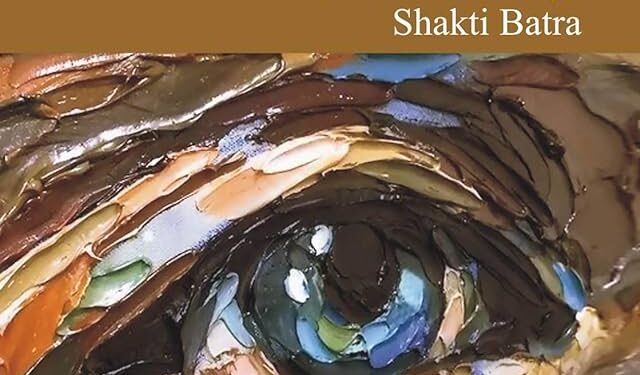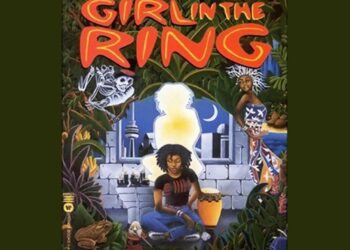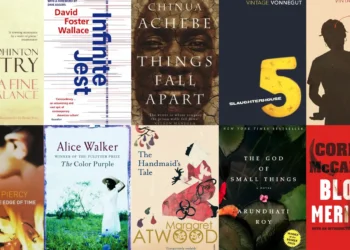What is the summary of the book Karukku
What is the summary of the book Karukku-What does the title Karukku signify?,What is the thesis of Karukku of Bama?,What is the character of Bama in Karukku?,What is the real name of Bama?,What is the role of education in Bama’s life?,What does the story of Bama talk about caste discrimination?,When was Karukku written?,What is the story of here comes super bus Bama?,Karukku by Bama is a moving and perceptive autobiographical story that immerses readers in the deep lives of a Tamil Nadu, India, Dalit Christian woman.
The author, writing under the pen name Bama, reveals the complex web of prejudice that Dalits experience in both the Hindu and Christian societies by portraying a realistic story of her upbringing, youth, and maturity through rich cultural exploration and storytelling. Simply said, the term “Karukku,” which translates to “palmyra leaves” in Tamil, is a metaphor for the Dalit community’s struggle with marginalization and resiliency.What is the summary of the book Karukku
Karukku Summary
Karukku by Bama is a moving autobiographical narrative that delves into the life of a Dalit Christian woman in Tamil Nadu, India, offering profound insights into her experiences and struggles. The title, “Karukku,” meaning “palmyra leaves” in Tamil, serves as a metaphor for the marginalized existence and resilience of the Dalit community. Bama, using a pseudonym to protect her identity, takes readers on a journey through her childhood, adolescence, and adulthood, vividly describing the challenges and discrimination faced by Dalits within both the Hindu and Christian communities.
The narrative begins in Bama’s small village, where untouchability and social exclusion shape her early years. The discrimination faced by Dalits is portrayed not only within the dominant caste Hindu community but also within the Christian community, highlighting the pervasive nature of prejudice. Bama skillfully navigates the complexities of her experiences, shedding light on the hypocrisy and injustice perpetuated by religious and social hierarchies.
Also Read-
- What is the Summary of the story Ismat Chughtai
- Manimahesh by Umaprasad Mukhopadhyay Summary
- What is the main theme and Summary of the novel samskara
As the narrative unfolds, Bama explores the systemic oppression faced by her community, dissecting the multifaceted nature of caste-based discrimination. Her pursuit of education becomes an act of defiance, challenging the predetermined roles assigned to Dalit women and emphasizing the transformative potential of education in combating social injustice.What is the summary of the book Karukku
The intersectionality of caste and gender is a recurring theme, with Bama providing a nuanced exploration of the unique struggles faced by Dalit women. Her personal reflections on relationships, marriage, and motherhood become a lens through which she critiques the patriarchal norms within her community, emphasizing the double marginalization experienced by Dalit women due to both their caste and gender.
Religious institutions and practices are scrutinized as well, with Bama questioning the authenticity of Christianity in the context of the entrenched caste system. The incongruity between Christian teachings of equality and love and the discriminatory practices within the church becomes a focal point, challenging readers to reflect on the interplay between faith and social justice.
Amidst the struggles and injustices, “Karukku” also celebrates resilience and solidarity within the Dalit community. Bama portrays the strength derived from shared experiences and a collective determination to challenge oppressive norms. Through her writing, she gives voice to the silenced and underscores the importance of self-assertion in the face of adversity.What is the summary of the book Karukku
Karukku Themes
- Caste Discrimination:
- Central to “Karukku” is the pervasive theme of caste discrimination, vividly depicting the social ostracization, untouchability, and systemic oppression encountered by the Dalit community within both Hindu and Christian spheres.
- Religious Hypocrisy:
- Bama’s narrative critically examines the hypocrisy within religious institutions, particularly Christianity. The book raises thought-provoking questions about the authenticity of religious teachings when confronted with discriminatory practices within the church.
- Intersectionality of Caste and Gender:
- A focal point is the intersectionality of caste and gender, with Bama reflecting on the unique struggles of Dalit women. The narrative underscores the double marginalization experienced by Dalit women due to both their caste and gender.
- Individual and Collective Resistance:
- Bama’s personal journey becomes emblematic of individual resistance against societal norms. Simultaneously, the narrative celebrates the collective strength and resilience of the Dalit community, highlighting shared experiences and determination to challenge oppressive structures.
- Education as Empowerment:
- The pursuit of education emerges as a powerful theme, symbolizing empowerment and resistance against societal constraints. Bama’s decision to seek education becomes an act of defiance, challenging predetermined roles and emphasizing the transformative potential of education.
- Identity and Self-Assertion:
- “Karukku” explores the intricate process of reclaiming one’s identity in the face of societal expectations and discrimination. Bama’s narrative underscores the importance of self-assertion, encouraging readers to confront and challenge oppressive norms.
- Marginalization within Christian Community:
- A lesser-explored theme is the discrimination within the Christian community itself. Despite sharing the same faith, Dalit Christians face exclusion and bias, unraveling the complex layers of caste dynamics within religious institutions.
- Reflections on Relationships and Motherhood:
- The narrative includes personal reflections on relationships, marriage, and motherhood, providing insights into the challenges faced by Dalit women within societal expectations and patriarchal norms.
- Social Injustice and Systemic Oppression:
- “Karukku” serves as a compelling commentary on social injustice and systemic oppression. The narrative prompts readers to critically examine societal norms and structures that perpetuate discrimination, encouraging contemplation on the potential for transformative change.
Conclusion
Karukku by Bama stands as a powerful testament to the resilience of the human spirit in the face of deep-rooted social injustices. The narrative skillfully intertwines various themes, from caste discrimination and religious hypocrisy to the intersectionality of caste and gender. Bama’s personal journey becomes a symbol of individual and collective resistance, emphasizing the transformative potential of education and the importance of self-assertion.
The exploration of identity and the challenges faced by Dalit women within societal norms provides a nuanced and thought-provoking perspective. The book, ultimately, invites readers to critically examine their own beliefs and societal structures, fostering a deeper understanding of the complexities of caste dynamics in India.
FAQ:
1. Why did Bama choose to use a pseudonym?
Bama opted for a pseudonym to protect her identity and shield herself from potential repercussions due to the candid and critical nature of her narrative.
2. How does “Karukku” contribute to discussions about caste and religion in India?
The book serves as a potent critique of the caste system, not only within Hinduism but also within Christianity. It challenges existing norms and prompts readers to reflect on the intersectionality of caste and religion in the Indian context.
3. What role does education play in Bama’s narrative?
Education is portrayed as a powerful tool for empowerment and resistance against societal constraints. Bama’s pursuit of education becomes an act of defiance, challenging predetermined roles and highlighting the transformative potential of education in breaking the chains of social injustice.
4. How does the book address the intersectionality of caste and gender?
“Karukku” delves into the unique struggles of Dalit women, emphasizing the double marginalization they face due to both their caste and gender. Bama’s personal reflections on relationships, marriage, and motherhood provide insights into the challenges within patriarchal norms.
















